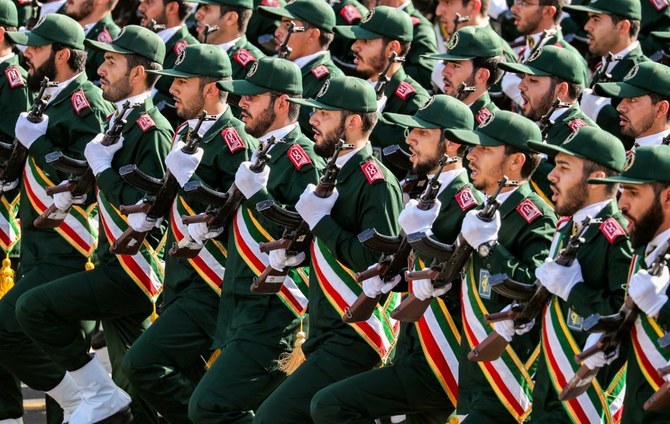Dr. Dania Koleilat Khatib
Abdulkhaleq Abdulla, the renowned Emirati scholar, last week wrote an article in which he described the region as moving from the “bad C” of confrontation to the “good C” of cooperation. However, despite his optimism, he recognized that the current rapprochement environment is fragile and cannot yet be called peace. He also said that this fragile peace could easily be decimated by three potential spoilers: Israel, radical forces in Iran, and a potential Donald Trump return to the White House in 2024.
Trump would not want to see a rapprochement between the two sides of the Gulf. He would seek a Gulf-Israel alliance against Iran. He would use all his weight to pressure all the Arab Gulf states into normalizing relations with Israel. He would push Arab countries into an unconditional normalization. This would definitely put Iran on edge and increase the tensions, reversing the few shy steps made toward peace.
As for the radical forces in Iran, namely the Islamic Revolutionary Guard Corps, we need to ask ourselves a question. What would be their value if Iran were to normalize with Saudi Arabia? When Iran no longer sees a value to its militias or sleeper cells, what would be the role of the IRGC, which is implicitly mandated with exporting the revolution? We have to remember that, after then-Foreign Minister Javad Zarif shook the hand of US Secretary of State John Kerry to seal the nuclear deal in 2015, the IRGC captured an American navy vessel that had drifted into Iranian waters. The Iranians filmed the American soldiers humiliated, on their knees and with their hands behind their heads. The purpose of this was not to humiliate the US – it was to humiliate Zarif and embarrass him in front of his American interlocutor. The message to Zarif was clear: We are here and we call the shots.
Similarly, the rapprochement between the two sides of the Gulf is a sign of worry to Israel. Israel has been able to thrive by playing on regional differences. Initially, Tel Aviv was an ally of the secular shah against pan-Arab and pan-Islamic leaders like Gamal Abdel Nasser of Egypt and King Faisal of Saudi Arabia. Both leaders advocated the Palestinian cause and the rights of the Palestinian people. However, when the regime changed in Iran in 1979 and became vehemently anti-Israel, the latter shifted to Turkiye. The secular Kemalist regime, which looked at Arabs in a condescending manner and sought to disengage from the Islamic East, was a perfect fit for an Israeli ally. This changed again with the rise of the AKP, especially with the rise to power of Recep Tayyip Erdogan. Erdogan sent the Freedom Flotilla in 2010, challenging Israel’s siege on Gaza. More recently, Israel has been able to play on Arab Gulf insecurity toward Iran and Turkiye in order to befriend them. The Abraham Accords were a result of this attitude. Israel was seen as a counterbalance to Turkiye and Iran.
Now that Iran, Saudi Arabia and Turkiye – the three heavy hitters in the region – are coming together, who will be Israel’s friend? Rightly identified by Abdulla, these three potential spoilers have a great interest in breaking the fragile rapprochement the region is witnessing.
We also have to remember that this rapprochement does not mean that these rivals trust each other. The mistrust is still high. The rapprochement is fragile because it was dictated by the interests of the moment. The different rivals have each reached their limit and realized that they have to accept each other because the proxy wars they are engaged in are futile. However, this does not mean that they trust each other, nor does it mean that if any state senses a security threat that its attitude will not change drastically overnight. The spoilers know this very well and are probably preparing some unpleasant surprises. The question we should ask ourselves is what should Saudi Arabia, Turkiye and Iran do to protect themselves from any unpleasant surprises?
To start with, building on the current agreements is a difficult task. The region does not have a framework to regulate relations between members, such as in the EU. Also, the region does not have a security guarantor, like the US was in Western Europe after the Second World War. America had military bases scattered across Europe at that time. In this regard, one might think of China, which does have economic interests with Saudi Arabia, Iran and even Turkiye. However, it does not have the military muscle or presence of the US in Europe post-1945. Hence, the onus is on the regional countries and their leaderships to cement peace. Again, one might point to investments and the power of money. Today, Turkiye is a main recipient of Gulf money. However, we need to remember that security trumps economic benefits. Each state’s first and foremost goal is to exist. This means security comes first. Business deals come as a cherry on top, but they cannot be the foundation of relations. The foundation of relations between states is security. The agreements need to be institutionalized. The different countries should set up a permanent committee that regularly meets and streamlines any security issues.
This modality does work. Iran and Oman have a good, functioning relationship despite the fact they are geographically “too close,” sharing the Strait of Hormuz. However, the two countries meet regularly to discuss any security problems that arise. This is how trust can be built. For such a dialogue to be effective, the rules of engagement should be defined at the outset. The different countries should agree to those rules and commit to abide by them. Hence, the relationship and the dialogue governing the relationship will be directed by them. This is not by any means easy, but it is necessary to cement the fragile rapprochement and develop it into a sustainable peace.
Abdulla noted that the region could easily drift from cooperation to the “ugly C” of chaos. So, an awareness is needed at the leadership level, as well at the popular level, of the challenges ahead. What is also needed is a change in mentality. In order to maintain the “good C,” these states should move away from a zero-sum mentality, in which they view any gain by the other as a loss for themselves. There should be an acceptance of each other’s influence. None of these states will totally relinquish their role in the region and adopt an isolationist policy. However, the key is to coordinate the different policies to reach some sort of accommodation that will encourage stability in the region.
The rapprochement faces serious challenges, but the region has a real chance to reach a sustainable peace. Abdulla fears the “C” of cooperation and conversation reverting to the “C” of confrontation and chaos. I hope for the “C” of cementing the rapprochement as opposed to the “C” of chatter. There is always the chance that these agreements will be nothing but chatter that results in nothing tangible in the long run.







